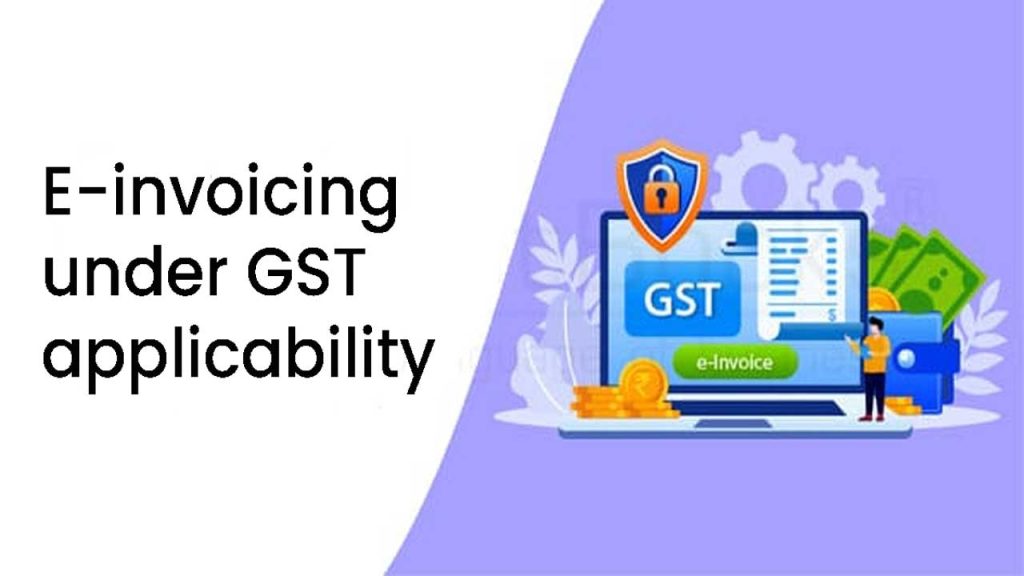E-invoicing under GST applicability – Transport of products between one location to others is enabled by submitting ‘E-Way Bills’ on the GST portal. Likewise, at its 35th meeting, the GST Council voted to introduce an e-invoicing scheme that would extend to particular groups of people. The CBIC has officially informed the scheme of e-Invoicing within GST vide Notification No. 68/2019-Central Tax, that incorporated sub-rules (4), (5) & (6) in line with Rule 48 of the CGST Rules of 2017 for the introduction of e-Invoicing.
E-Invoicing doesn’t really mean the production of invoices on the GST portal. That would’ve been a myth. Rather, e-Invoicing requires the submitting of a standard invoice once created on the popular e-invoice platform. Therefore, multi-purpose reporting is streamlined with one-time invoice information input. The CBIC informed a series of traditional portals for the processing of e-invoices through Notification No.69/2019-Central Tax.

E-Invoicing is a method wherein B2B receipts are digitally signed by GSTN for subsequent use with the GST portal. An identification number would be given towards each invoice through the Invoice Registration Portal to be operated by the GST Network underneath the electronic invoicing method. The very first IRP was introduced at einvoice1.gst.gov.in by the National Informatics Centre. All billing details would be moved in real-time from such an application to both the GST portal as well as the e-way bill portal. It would also remove any need for manual data entry when submitting the GSTR-1 return and also the creation of part-A of the e-way bills, as the details are submitted straightforwardly to the GST by the IRP.
Must Read – Benefits of GST E-invoicing
GST E-invoicing applicability
From 1/10/2020, e-Invoicing was rendered accessible to all firms whose gross turnover in each of the previous FY from 2017-18 to 2019-20 surpassed the ₹500 crore cap. Notification No.61/2020 – The Central Tax has set a turnover cap on 1/10/2020 for the introduction of e-Invoicing. Notification No.71/2020 – The duration period prescribed for evaluating eligibility within e-Invoicing is prescribed by the Central Tax.
Furthermore, starting 1/1/2021, as indicated in Notification No.88/2020 – Central Tax, e-Invoicing would be relevant to undertakings above the ₹100 crore turnover cap in each of the FY between 2017-18 to 2019-20.
That being said, regardless of turnover, e-Invoicing, as informed in CBIC Notice No.13/2020 – Central Tax, is currently not relevant to the following areas of enrolled individuals
- An insurer, a banking firm or a financial firm, like the NBFC.
- Goods Transport Agency (GTA).
- A registered individual delivering passenger transport services.
- A registered individual offering facilities by means of access to the showing of cinematographic films through multiplex facilities.
- SEZ unit (exempted by CBIC Notice No. 61/2020-Central Tax).



